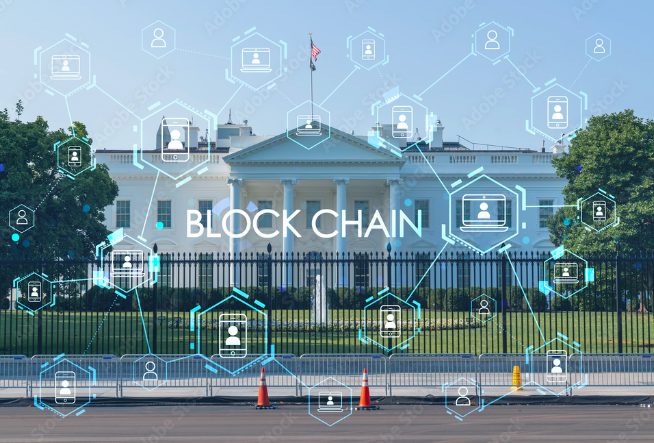Blockchain in Government: Enhancing Transparency and Efficiency - Improving government processes with blockchain

Blockchain technology, often synonymous with cryptocurrencies like Bitcoin, has transcended its financial origins to revolutionize government processes. In this comprehensive article, we explore how blockchain is enhancing transparency and efficiency in government operations, setting the stage for a more accountable and streamlined public sector.
Unveiling the Power of Blockchain
Blockchain, at its core, is a distributed ledger technology that records transactions across a network of computers. It offers unparalleled benefits to government entities seeking to modernize their systems:
Immutable Records
Blockchain's immutability ensures that once data is recorded, it cannot be altered or deleted without consensus from the network participants. This feature is instrumental in maintaining the integrity of government records.
Enhanced Security
The cryptographic techniques employed by blockchain make it highly resistant to cyberattacks and data breaches. Government data, including sensitive citizen information, is shielded from unauthorized access.
Transparency
Every transaction on a blockchain is visible to authorized parties, fostering transparency and accountability within government agencies.
Transforming Government Functions
Blockchain's impact on government processes is far-reaching, encompassing various functions:
Supply Chain Management
Governments rely on the efficient movement of goods and services. Blockchain optimizes supply chain management by providing real-time visibility into the flow of products, reducing delays and ensuring the authenticity of goods.
Voting Systems
Blockchain can revolutionize voting systems by creating a secure, tamper-proof platform for elections. This eliminates concerns about voter fraud and enhances confidence in the democratic process.
Identity Verification
Blockchain-based identity verification simplifies citizen authentication, reduces identity fraud, and enhances public services' accessibility.
Public Finance
Managing public finances is a complex task. Blockchain can streamline budget allocation, reduce corruption, and ensure that funds are used for their intended purposes.
Implementing Blockchain in Government
To fully harness the potential of blockchain in government, consider the following steps:
1. Choose the Right Blockchain Platform
Select a blockchain platform that aligns with the government's goals and requirements. Factors to consider include scalability, security, and ease of integration with existing systems.
2. Develop Smart Contracts
Smart contracts are self-executing agreements that automate processes. Developing customized smart contracts can significantly improve efficiency in government operations.
3. Data Privacy and Compliance
Ensure that blockchain implementations adhere to data privacy regulations, such as GDPR, and comply with local and national laws.
4. Stakeholder Engagement
Engage stakeholders, including citizens and government employees, to ensure buy-in and smooth adoption of blockchain solutions.
Case Studies in Blockchain-Driven Governance
Estonia: E-residency Program
Estonia's pioneering e-residency program leverages blockchain to offer digital residency to individuals worldwide. This program provides access to Estonian services and businesses, fostering international entrepreneurship.
Dubai: Blockchain-Powered Government
Dubai aims to become the world's first blockchain-powered government by 2020. It has integrated blockchain into various services, including property transactions and healthcare.
The Future of Transparent and Efficient Governance
As governments worldwide increasingly embrace blockchain technology, the trajectory of governance is set to change. Transparency, efficiency, and security will become the norm, ensuring that public resources are utilized optimally and citizens' trust in their governments is restored.
Blockchain's role in government extends beyond buzzwords; it is a tangible force that will redefine how nations function. By adopting blockchain, governments pave the way for a brighter, more transparent, and accountable future.


